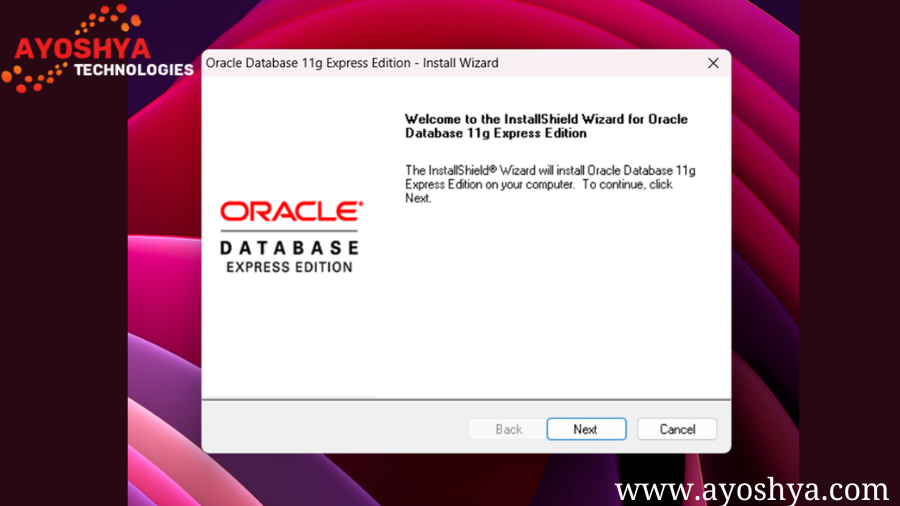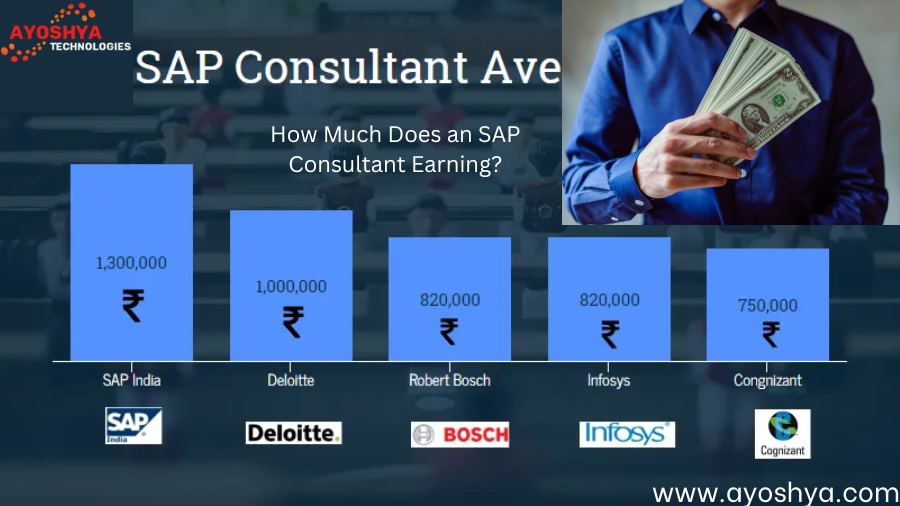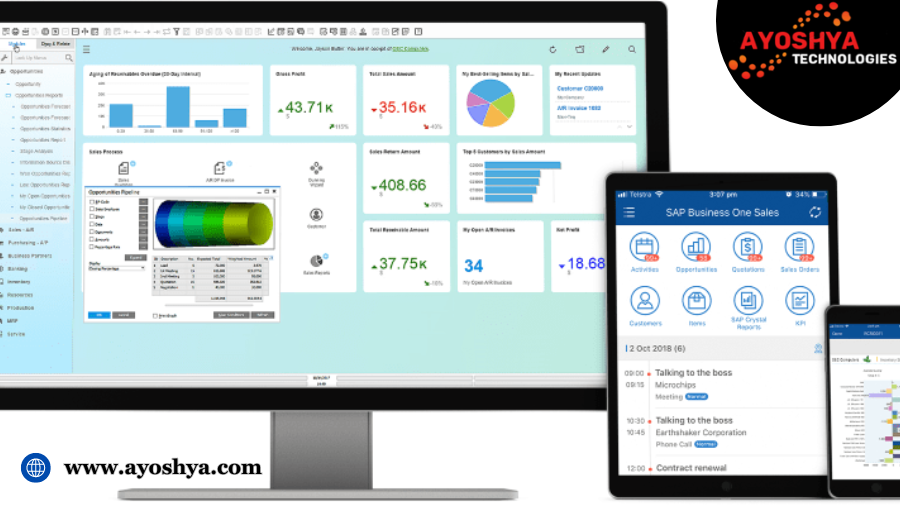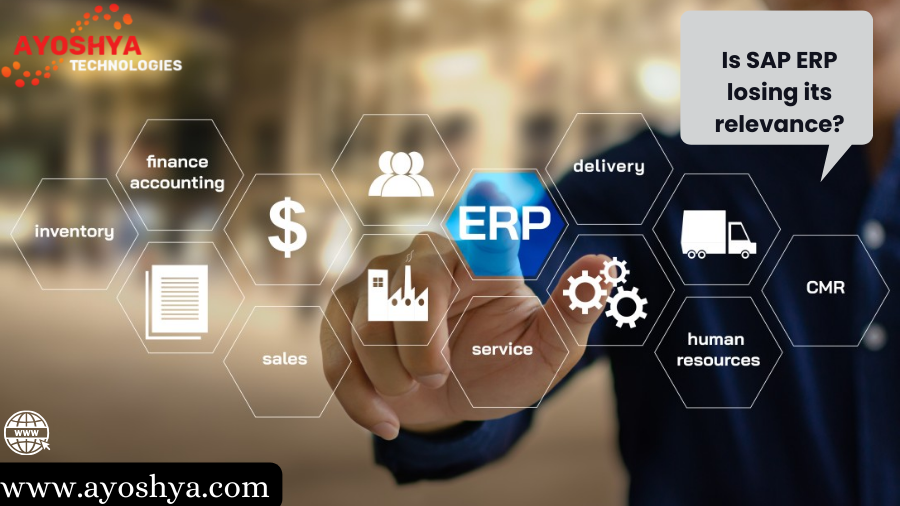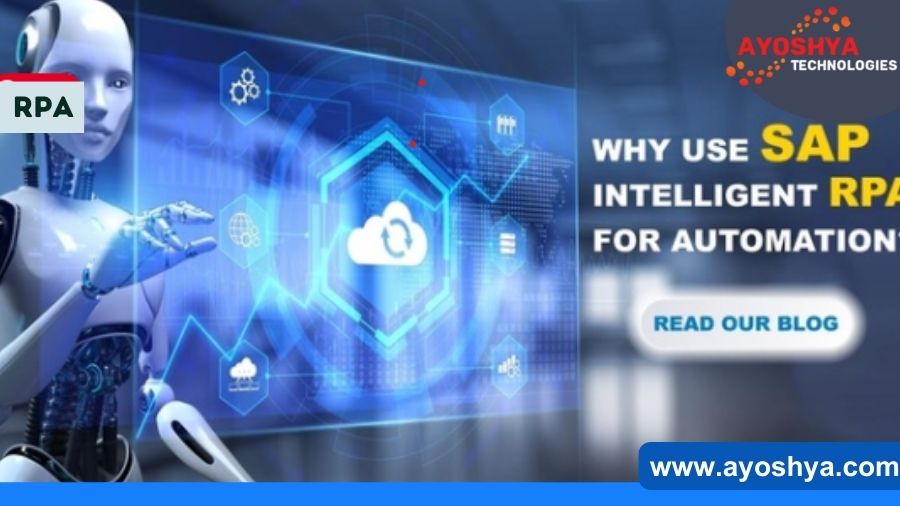Bogged down by repetitive tasks? Discover how SAP Intelligent RPA developer can streamline your processes (…). Enhance productivity, eliminate errors, and unlock a world of automation benefits. Explore the reasons to choose SAP Intelligent RPA and propel your business forward!
Ever feel like you’re drowning in a sea of repetitive tasks, wasting valuable time clicking, copying, and pasting your way through the workday? If so, you’re not alone! Manual processes can strangle productivity and leave you yearning for a more streamlined workflow. But fear not, there’s a superhero in the automation world ready to swoop in and save the day: SAP Intelligent RPA. This powerful tool transcends traditional Robotic Process Automation (RPA) by offering a world of intelligent automation benefits, boosting efficiency, eliminating errors, and propelling your business forward. So, ditch the manual drudgery and dive into the world of SAP Intelligent RPA – let’s explore exactly why it should be your go-to solution for automation!
2. Unveiling SAP Intelligent RPA: A Streamlining Powerhouse
Imagine a tireless digital workforce that can tirelessly handle the mundane, repetitive tasks that bog down your team’s productivity. This is the magic wielded by SAP Intelligent RPA, a sophisticated automation solution that empowers organizations to streamline workflows and achieve operational excellence.
At its core, SAP Intelligent RPA leverages the power of Robotic Process Automation (RPA). RPA utilizes software robots, often called bots, to automate routine tasks across various applications. These bots can mimic human actions, such as logging into systems, extracting data, manipulating information, and triggering actions – essentially replicating the steps a human user would take to complete a task. However, SAP Intelligent RPA goes beyond basic RPA by incorporating elements of artificial intelligence (AI) and machine learning (ML). This elevates it to the realm of Intelligent Automation, enabling it to handle more complex scenarios and continuously learn and improve.
One of the key strengths of SAP Intelligent RPA lies in its ability to automate tasks across a diverse range of applications. It seamlessly integrates with various SAP and non-SAP applications, eliminating the need for complex integrations or custom coding. This allows businesses to automate tasks across their entire digital ecosystem, from data entry in finance systems to generating reports in customer relationship management (CRM) software. For instance, an SAP Intelligent RPA bot can be programmed to automatically extract customer data from an e-commerce platform, verify credit card information, and process orders – all without human intervention.
Furthermore, SAP Intelligent RPA boasts impressive user interface (UI) interaction capabilities. Bots can interact with various UI elements across different applications, mimicking human actions like clicking buttons, entering data into forms, and navigating menus. This allows for the automation of tasks that were previously considered too complex for traditional RPA solutions. Imagine a bot that can log into a supplier portal, download invoices, and automatically upload them into your enterprise resource planning (ERP) system – a prime example of how SAP Intelligent RPA can streamline inter-system data exchange and eliminate manual data entry errors.
Why Use SAP Intelligent RPA for Automation? A Compelling Case
In today’s fast-paced business environment, efficiency reigns supreme. Organizations are constantly seeking ways to streamline workflows, boost productivity, and free up valuable resources to focus on strategic initiatives. This is where SAP Intelligent RPA emerges as a game-changer, offering a compelling case for automation with a multitude of benefits.
Enhanced Productivity and Reduced Costs:
Imagine a scenario where repetitive tasks like data entry, report generation, and order processing are handled automatically, freeing up your employees to focus on higher-value activities. This is the reality with SAP Intelligent RPA. By automating these mundane tasks, organizations can experience a significant boost in productivity. Employees are no longer bogged down by repetitive work, allowing them to dedicate their time and skills to tasks that require human judgment, creativity, and problem-solving. This translates to increased output, improved customer service, and ultimately, a competitive edge.
Furthermore, SAP Intelligent RPA directly impacts the bottom line by reducing labor costs associated with manual processes. Think about the countless hours spent on routine tasks by employees – hours that could be better spent on strategic initiatives. With SAP Intelligent RPA handling these tasks, organizations can optimize their workforce, reduce the need for additional personnel, and achieve significant cost savings. The return on investment (ROI) for SAP Intelligent RPA can be substantial, as the cost savings from eliminated manual work often outweigh the initial investment in the technology.
Improved Accuracy and Scalability:
Manual data entry is a breeding ground for errors. Typos, missed information, and inconsistencies can lead to a domino effect of problems throughout your business processes. Here’s where SAP Intelligent RPA shines. By automating tasks, you eliminate the possibility of human error and ensure consistent, accurate data throughout your systems. This leads to improved data integrity, better decision-making, and a reduction in rework caused by errors.
Another compelling reason to use SAP Intelligent RPA is its remarkable scalability. As your business grows and your processes evolve, SAP Intelligent RPA can easily adapt. New tasks can be readily automated, and existing bots can be modified to accommodate changing workflows. This scalability ensures that your automation strategy can grow alongside your organization, future-proofing your investment in SAP Intelligent RPA.
Beyond the Basics: The Advantages of SAP Intelligent RPA
While the core functionalities of SAP Intelligent RPA are impressive, its true power lies in the additional advantages that set it apart from traditional RPA solutions. These features elevate SAP Intelligent RPA to the forefront of intelligent automation, offering businesses a multitude of benefits beyond basic task scripting.
Low-Code/No-Code Development and Faster Implementation:
One of the significant advantages of SAP Intelligent RPA is its user-friendly, low-code/no-code development environment. This means that even users with limited technical expertise can create and deploy automated workflows. The intuitive interface utilizes drag-and-drop functionalities and pre-built components, allowing business users to automate tasks without extensive coding knowledge. This empowers organizations to democratize automation and foster a culture of citizen developers within the business.
Furthermore, this low-code/no-code approach translates to faster implementation times. Businesses can quickly identify automation opportunities, build and deploy bots, and experience the benefits of SAP Intelligent RPA much sooner compared to traditional RPA solutions that require extensive coding and configuration. This rapid implementation allows organizations to realize a faster return on investment (ROI) and gain a competitive edge through streamlined workflows.
Pre-built Bots and AI/ML Capabilities:
SAP Intelligent RPA doesn’t require you to start from scratch for every automation need. It offers a rich library of pre-built bots and templates that cater to common tasks across various business functions, such as finance, human resources, and supply chain management. These pre-built solutions can be easily customized and deployed, accelerating your automation journey.
Beyond pre-built solutions, SAP Intelligent RPA takes automation a step further by incorporating elements of Artificial Intelligence (AI) and Machine Learning (ML). This elevates it to the realm of Intelligent Automation, enabling bots to handle more complex scenarios and continuously learn and improve. For instance, AI-powered bots can analyze data patterns and identify opportunities for further automation, while ML algorithms allow bots to adapt to changing environments and refine their processes over time. This intelligent automation capability ensures that your bots remain efficient and effective as your business needs evolve.
Security and Integration:
Security is paramount when automating tasks, especially those involving sensitive data. SAP Intelligent RPA prioritizes data security by offering robust features like user access controls, data encryption, and audit trails. These features ensure that only authorized users can access and modify bots, and all activities are meticulously tracked for auditing purposes. This focus on security gives organizations peace of mind when deploying SAP Intelligent RPA across their business processes.
Finally, seamless integration with existing SAP landscapes is another key advantage. SAP Intelligent RPA integrates effortlessly with various SAP solutions, including SAP S/4HANA and SAP SuccessFactors. This allows for a holistic automation approach, streamlining workflows that span across different SAP applications.
FAQ
What is the difference between RPA and Intelligent RPA?
Robotic Process Automation (RPA) and Intelligent RPA (IRPA) are both automation solutions, but with key distinctions. Traditional RPA automates tasks by mimicking human actions through pre-programmed scripts. While effective for repetitive tasks, RPA can struggle with exceptions or variations in workflows.
IRPA, on the other hand, builds upon the foundation of RPA by incorporating elements of AI and ML. This empowers IRPA bots to handle more complex scenarios, adapt to changing environments, and continuously learn and improve. Think of RPA as a skilled assistant who can follow a set of instructions perfectly, while IRPA is a more versatile and intelligent partner that can learn and adapt to new situations.
How does SAP Intelligent RPA work?
SAP Intelligent RPA operates through a combination of software robots (bots) and a user-friendly development environment. Here’s a simplified breakdown:
- Identify Automation Opportunities: The first step involves analyzing your business processes and identifying repetitive tasks that can be automated. This could involve data entry, report generation, or order processing tasks across various applications.
- Develop and Deploy Bots: Using the intuitive development environment, you can visually design the workflow for your bot. This may involve pre-built components or building custom scripts depending on the complexity of the task.
- Execution and Monitoring: Once deployed, the bot executes the programmed tasks autonomously, interacting with various applications and mimicking human actions. The performance and activity of the bot can be monitored and adjusted as needed.
What types of tasks can be automated with SAP Intelligent RPA?
The versatility of SAP Intelligent RPA allows it to automate a wide range of tasks across different business functions. Here are some examples:
- Finance: Automating accounts payable tasks, generating invoices, and reconciling financial statements.
- Human Resources: Onboarding new employees, processing payroll, and managing leave requests.
- Supply Chain Management: Processing purchase orders, managing inventory levels, and tracking shipments.
- Customer Service: Responding to frequently asked questions, generating reports, and updating customer information.
These are just a few examples, and the possibilities for automation with SAP Intelligent RPA are constantly expanding.
Is SAP Intelligent RPA easy to implement?
The low-code/no-code development environment of SAP Intelligent RPA makes it easier to implement compared to traditional RPA solutions that require extensive coding expertise. Additionally, pre-built bots and templates further streamline the process. However, successful implementation involves careful planning, process analysis, and potential change management initiatives to ensure user adoption.
What are the costs associated with SAP Intelligent RPA?
The cost of SAP Intelligent RPA can vary depending on factors like the number of users, deployment model (cloud-based or on-premise), and the required level of customization. However, the potential return on investment (ROI) can be significant through increased productivity, reduced errors, and cost savings from streamlined workflows.
You may be interested in this blog here
Which area has more demand: SAP BI or HANA? Why?
SAP Adobe Interactive Forms
9000+ salesforce developer jobs in usa (56 new)
What is SAP report?






